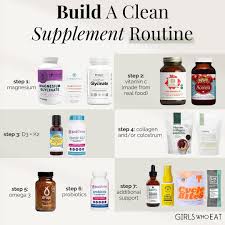Let’s Get Real About Skin and Supplements

When most people think of supplements for healthy skin, they picture glowing faces on magazine covers or influencers touting collagen powders in a morning routine video. Fair enough. But here’s the thing: those very same supplements might also be steering how oily—or how desert-dry—your skin feels day to day.
You know what? Supplements for healthy skin not the kind of thing beauty brands put in glossy ads. Yet it explains so much. Why is your friend constantly blotting their shiny forehead, while your cousin is layering on thick moisturizers like she’s prepping for a Chicago winter? Sometimes, it’s not their skincare brand—it’s their vitamins.
Think about it: nutrients don’t just float around aimlessly. Omega-3s, B vitamins for skin health, and the ever-loved vitamin C for skin are busy sending signals to your glands. It’s like a group chat in your body—you may not always see it, but the conversation is loud. And if you’ve noticed some supplements that change body odor, you already know: what goes in doesn’t just change your health—it shows up in how you smell, how you feel, and yes, how shiny (or not) your face looks.
And let’s be honest, mixing vitamins with prescriptions without checking is like tossing random spices into a stew. Sometimes it works, but other times it’s a disaster. That’s why tools like a medication interaction checker aren’t “optional”—they’re lifesavers.
Do Vitamins Affect Skin Oil? Let Me Explain

People love to ask: do vitamins affect skin oil production? Honestly, yes. And not just a little—sometimes a lot.
Sebum, your skin’s natural oil, is misunderstood. It’s the butter on your toast—spread just right, and it’s delicious. Too much, and it’s greasy. Too little, and it’s dry and unappealing. Sebum protects against bacteria, keeps your skin soft, and seals in moisture. But balance is everything.
Here’s the thing: vitamins influence sebum like a thermostat. Vitamin A directs how fast skin cells shed. B vitamins control hormone balance (and let’s face it, hormones are the real bosses when it comes to oil). Antioxidants like vitamin C soothe oxidative stress, which otherwise makes your glands go haywire. And omega-3 fatty acids? They’re like your calm friend, the one who lowers the tension when arguments flare up at the dinner table.
So yes—your vitamins are quietly adjusting your skin’s oil production every single day. Get the levels right, and your skin stays balanced. Get them wrong, and you’re either blotting away shine or scraping for more moisturizer.
Omega-3s: The “Keep Calm” Nutrient

If one nutrient deserves the spotlight, it’s omega-3. The omega-3 benefits for skin aren’t marketing hype—they’re grounded in science. These fatty acids reduce inflammation, regulate oil, and strengthen your skin’s barrier.
Picture this: your sebaceous glands are like a busy diner kitchen. Orders are flying in, cooks are stressed, and grease is everywhere. Omega-3s step in as the calm manager, slowing things down, cutting back the extra oil, and reminding everyone to breathe. The result? Less shine, fewer clogged pores, and skin that feels steady.
And you know what else? Omega-3s lock water in your skin, which means less flakiness. That’s why people with oily skin and people with dry skin both benefit. Rarely do you find a nutrient that works for both ends of the spectrum.
Here’s a quirky side note: too much fish oil can literally make you smell fishy. It’s not dangerous, but it’s awkward—especially in a crowded gym or office. That’s why it’s grouped among supplements that change body odor. And if you’re on medications like blood thinners, omega-3s can raise bleeding risk. A quick check with a medication interaction checker (Drugs.com, WebMD, or MedlinePlus all offer free tools) can save you from an unpleasant surprise.
Seasonal thought: ever notice your skin acts up in winter? Omega-3s can be especially helpful then, when dry air pushes your glands to overcompensate with oil.
B Vitamins: Friends, Foes, and Everything Between

Now, the B vitamins for skin health—they’re complicated. Think of them as that group of friends who sometimes save the night, but occasionally start the drama.
-
Vitamin B6 is the reliable one. It helps manage hormones, which makes it a secret weapon during PMS flare-ups or stress-related breakouts.
-
Vitamin B12 is more unpredictable. You need it for energy and red blood cell health, but in high doses it’s been linked to acne. It’s like that friend who’s amazing most of the time but says the wrong thing at the worst moment.
-
Niacin (B3) is the peacemaker. It calms redness, strengthens your skin barrier, and reduces oil spikes. That’s why you see it in both supplements and topical creams.
Here’s the kicker: B vitamins can be your skin’s best allies—or the ones you quietly side-eye—depending on dosage. And this is where natural imperfection comes in. People often assume if some is good, more is better. Not with B vitamins. Too much B12, for example, and suddenly you’re dealing with pimples you thought you’d left behind in high school.
So when people ask, do vitamins affect skin, the real answer is: yes, but the effect depends on how well you balance the good with the not-so-good.
Vitamin C: Not Just Your Flu Season Friend

Let’s talk about vitamin C for skin. Most people think “brightening serums” or “immune booster.” But vitamin C is also quietly helping manage your oil.
Think of oxidative stress like a city traffic jam. It makes everything chaotic, raises tension, and signals your glands to “hurry up” by making more oil. Vitamin C acts like traffic control—it clears the lanes, lowers stress, and gets everyone moving smoothly again.
But vitamin C doesn’t stop there. It boosts collagen (your skin’s scaffolding), heals blemishes faster, and softens scars. That’s why so many dermatologists recommend both topical and oral vitamin C.
Here’s the thing: vitamin C supplements can clash with certain meds if you take mega doses. Honestly, why gamble? A quick run through a medication interaction checker is faster than dealing with side effects later.
Quick cultural cue: in Korea’s booming skincare industry, vitamin C serums are considered essentials, but many dieticians there also recommend vitamin-C-rich foods like kiwi or papaya for that natural inside-out glow.
Supplements That Change More Than Skin

You know what’s funny? Some supplements that change body odor shift your scent before they ever change your skin.
Take a hefty B-complex dose, and suddenly your sweat smells metallic. Ever noticed? Fish oil? You already know where that’s going. And choline? In high amounts, it’s got a sulfur-like edge.
Are these side effects harmful? Not really. But they’re reminders that supplements ripple across your body in unexpected ways. And honestly, it’s kind of fascinating. What you smell like and how your skin looks are both tied to what you put inside your body.
Safety First: Why Checkers Save Headaches

Here’s the thing: people love to say “it’s natural, so it’s safe.” But mushrooms are natural too, and not all of them are friendly. Supplements and prescriptions can clash in serious ways.
-
Omega-3s plus blood thinners? More bleeding risk.
-
High vitamin C and chemo drugs? Not a good mix.
-
Certain B vitamins and seizure meds? They don’t always play nice.
And it’s not rare—it’s common enough that pharmacists talk about it daily. That’s why a medication interaction checker should be as routine as checking if milk in your fridge is expired.
Building a Routine That Makes Sense

So, how do you actually use supplements for healthy skin without stressing over every pill? Let’s keep it simple:
-
Food comes first. Spinach, salmon, bell peppers—they give your body nutrients in the form it likes best.
-
One at a time. Add supplements slowly, so you can track what helps and what doesn’t.
-
Don’t go overboard. Vitamins aren’t lottery tickets. Doubling your dose won’t double your glow.
-
Check interactions. Seriously, two minutes online with a medication interaction checker could save months of side effects.
-
Ask for guidance. Nutritionists and dermatologists are worth their weight in gold here.
It’s like building a skincare routine. You wouldn’t slap on ten new serums at once. Supplements deserve that same careful pace.
Wrapping It Up: Balance Over Buzz
So, do vitamins affect skin? You bet they do. From the calming omega-3 benefits for skin, to the regulating B vitamins for skin health, to the antioxidant punch of vitamin C for skin, nutrients quietly direct how your skin behaves.
But they don’t stop there. Some supplements that change body odor remind us that health echoes across systems we don’t even think about. And when mixed carelessly with medications, those “natural” helpers can become complications—something a medication interaction checker helps prevent.
The real lesson? Balance. The right supplements for healthy skin aren’t about chasing glow like a beauty ad. They’re about stability—steady oil, calmer skin, and a body that feels in rhythm. Because your skin isn’t just a surface you pamper—it’s a reflection of the choices you make every day.
FAQ Section
1. Can supplements really make my skin oily?
Yes. Certain vitamins, especially B12, can trigger excess oil or acne in some people if taken in high doses.
2. Which supplements are best for calming oily skin?
Supplements for healthy skin could be Omega-3s, B6, and vitamin C can help regulate sebum production while reducing inflammation.
3. Can too many supplements dry out my skin?
Yes. Over-supplementing can shift oil production too far the other way, leading to dryness.
4. Are topical vitamins better than oral ones?
Both matter. Topical products like vitamin C serums treat surface issues, while oral supplements nourish the skin systemically.
5. How do I check if my supplements are safe with my meds?
Use a medication interaction checker such as Drugs.com, MedlinePlus, or the tools on www.evaluatemymeds.com.








